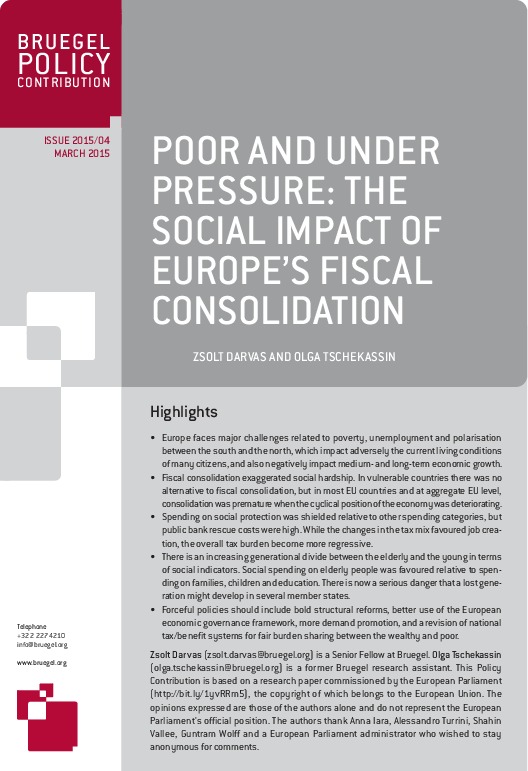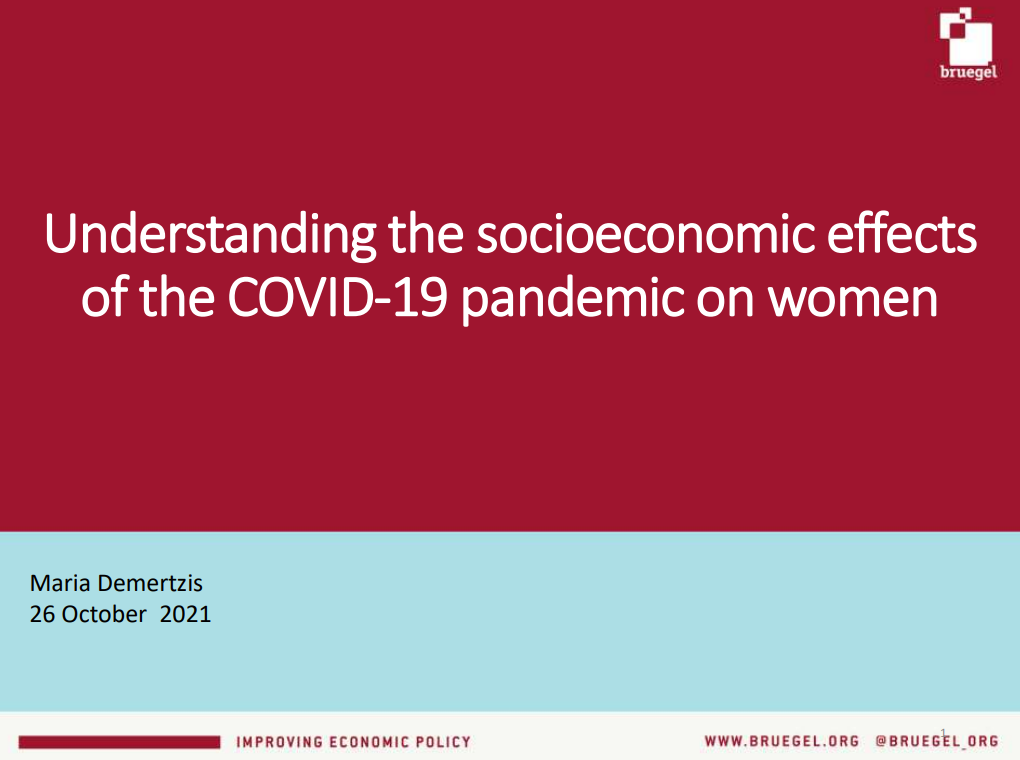Policy Contribution
Poor and under pressure: the social impact of Europe’s fiscal consolidation
This Policy Contribution evaluates social indicators that can have a bearing on poverty, looks at the fiscal consolidation strategies of EU member states and assesses the possible links between fiscal consolidation and social developments.
- Europe faces major challenges related to poverty, unemployment and polarisation between the south and the north, which impact adversely the current living conditions of many citizens, and also negatively impact medium- and long-term economic growth.
- Fiscal consolidation exaggerated social hardship. In vulnerable countries there was no alternative to fiscal consolidation, but in most EU countries and at aggregate EU level, consolidation was premature when the cyclical position of the economy was deteriorating.
- Spending on social protection was shielded relative to other spending categories, but public bank rescue costs were high. While the changes in the tax mix favoured job creation, the overall tax burden become more regressive.
- There is an increasing generational divide between the elderly and the young in terms of social indicators. Social spending on elderly people was favoured relative to spending on families, children and education. There is now a serious danger that a lost generation might develop in several member states.
- Forceful policies should include bold structural reforms, better use of the European economic governance framework, more demand promotion, and a revision of national tax/benefit systems for fair burden sharing between the wealthy and poor.















